In December 2021, the European Union announced its newest global investment project: the Global Gateway.
The Global Gateway is an initiative of 300 billion euros, raised in a period of 6 years (from 2021 to 2027) between the private sector, the Member States of the European Union (EU), global banks, and the Union itself to expand its global infrastructure investments in technology, sustainable energy, transportation, health, and education and research.
Would then be the Global Gateway only an attempt to dribble the European Union as an attempt of the geopolitical ball?

The geostrategic importance of the Global Gateway to the European Union
Geopolitical analyses turn to the non-confrontational conflict between the great economic powers of the West (the United States and the European Union) with China’s great advance and its “Belt & Road Initiative.”
Since 2016, China has been investing in the search for more resources and new consumer markets internationally through its global infrastructure investment project “Belt and Road Initiative” (BRI). With a budget of about $4 trillion, the so-called “New Silk Road” is providing you with a geopolitical edge with debt negotiations and loans with participating countries.
In addition to gaining greater market share with its economic diffusion, this exchange of favors of the Asian power in the territories is also a demonstration of its hegemony and economic power as a world player.
So far, China has invested about US$27.3 billion in Pakistan, US$20.3 billion in Indonesia and US$12 billion in Kazakhstan in infrastructure projects and market routes, and continues to advance Europe into its ports and highways.
With this initial start of China, the Global Gateway appears to be an EU action of response to the BRI to reaffirm its geopolitical power, seeking to expose to the world that is also a leading player in the game of international relations and will not shy away to other powers.
It is a reaffirmation of its territory, its influence and its economic power.
The global response to the EU’s Global Gateway
Even seeking a validation of the international scene, the general response was disbelief in the European project. Although it did not direct its promises directly to China, the announcement failed to hide the power move it was seeking to accomplish.
The point is: the European Union is already present as a global infrastructure investor, for example its TEN-T, but it did not invest in its image as a driver of development, participating only as a hidden actor.
This is how critics of the Global Gateway can say that the project is a “PR stunt“, a great marketing move, and only a change of classifications to existing actions in search of political power and recognition.
Inclusive, a The Economist published major criticisms of the Global Gateway, calling the action a big bullshit, an action as a great movement of publicity and of international relations, without much base or political project in itself.
But, going further, the topics that were presented by Ursula von der Leyen, President of the European Commission, are extremely general and vague. What do world-class investments in technology, sustainable energy, transport, health and education and research really mean? How will the projects be implemented in practice? Which countries will receive credit/investments? What are the criteria for this receipt?
The amount of European Union funds available for investments are composed in part by resources of the EU Member States, not making it clear how they will reach the amount of external investment of 300 billion euros. The attempt to sell this project to private capital may not be as successful, as the material strategy for its execution is not so clear.
International development projects of the West versus the East
The inequality between developed and poorer countries, the so-called “Third World” or developing countries, such as the countries of the African continent and Latin America, is still very high. To reduce this inequality, credit and expertise in development projects in these regions are vital.
The big question is the protagonism that China gained as a supplier of this support in these countries. It placed itself asan alternative source of loans, while the Western powers were losing their participation hegemony.
The Global Gateway, as well as the International Development Project B3W “Build Back Better World” (Build Around a Better World) led by the United States, is the attempt to regain geopolitical power and influence over raw material producers and export markets.
There is a perception that these actors (China, EU, USA) are benevolent in their intentions, but we cannot fail to consider that international development projects are a geopolitical tool of international influence.
The growth of new economic powers in search of regional and world hegemony, even more with differences in the political-ideological bias as great as China, causes the Western actors to move so that there are no more Eastern “goals”.
The competition for global protagonism is becoming increasingly fierce, but more importantly, it is coming out from behind the scenes and taking the spotlight of the global development debate.

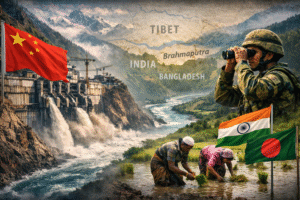
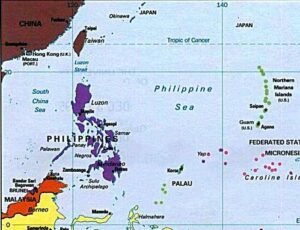
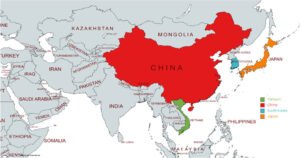
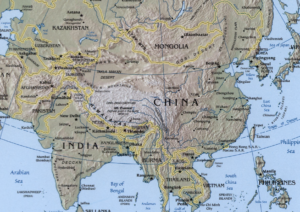
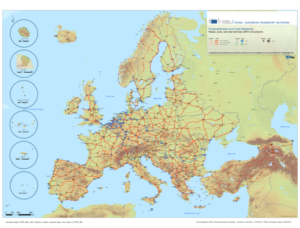







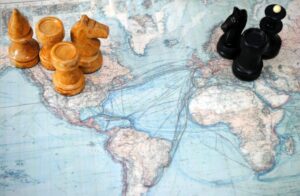

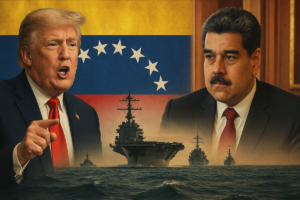
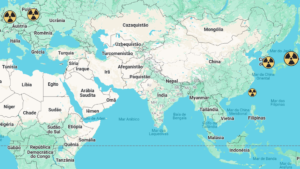
[…] are several developmental projects currently underway by the EU, such as the Global Gateway and a Three Seas Initiative. […]
[…] It is another action within the European Union seeking to reaffirm itself for the international scene, as well as for these 12 States, of which the Union is there to provide support and base, without the need to establish new socioeconomic contracts with other powers. […]
[…] is part of international relations and more countries will copy the strategy of major developmental projects such as the Belt & Road of China to increase their international alliances and realize their […]
[…] European Union has the Global Gateway, a global integration strategy and your participation as an investor in the Rogun hydroelectric […]
[…] global investment programs have emerged since then, such as the European Union’s own initiative Global Gateway as a way of responding to China’s political and economic advancement in other […]